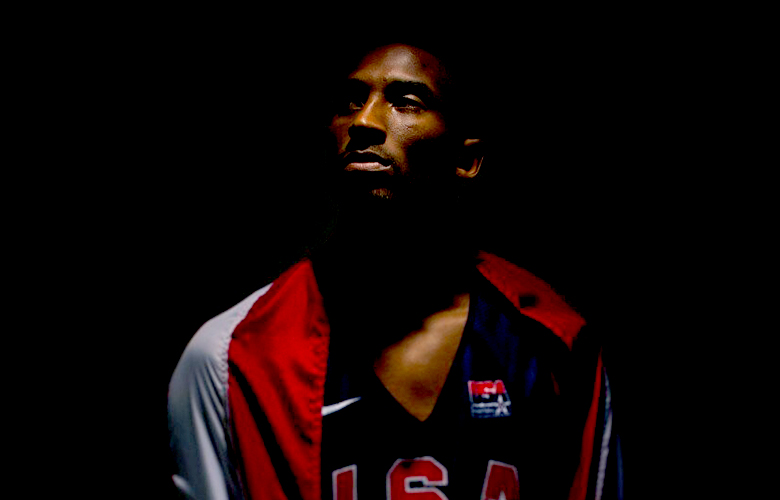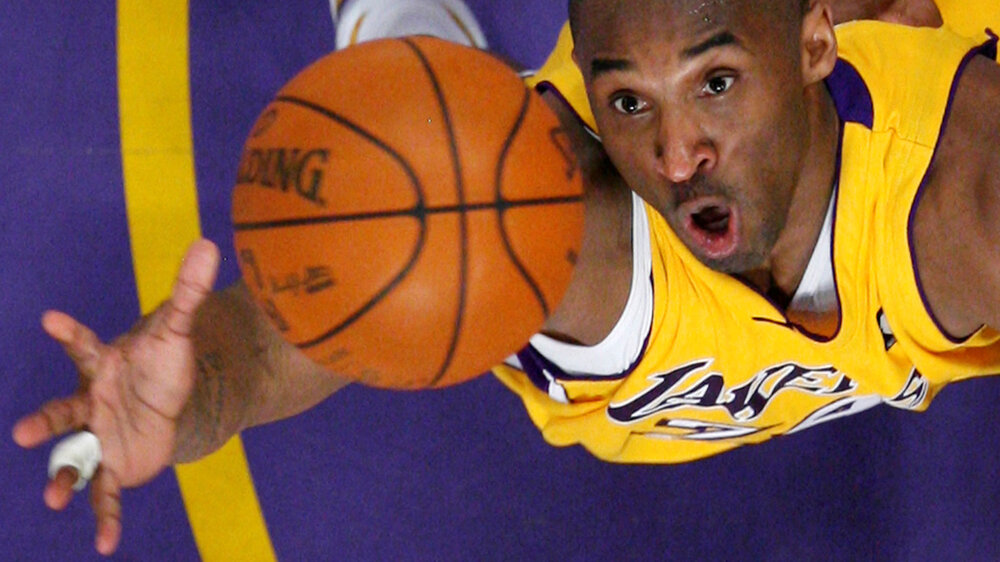
The test of any person’s fame is whether their notoriety transcends those who follow their field. Such is the case with Kobe Bryant. Upon learning of Bryant’s untimely death on January 26, 2020, many of Broadway’s finest felt called to thank him for the inspiration he provided.
His jersey number #24 became synonymous with Bryant himself. “They say when you turn 24, it’s your Kobe Year,” recalls actress Melissa Victor. “That’s because Kobe Bryant was not just a basketball player, but an icon.”
“To say Kobe had an effect on my life would be an understatement,” says West Side Story’s Dharon E. Jones. “His words, wisdom and dedication to the game of basketball shaped my view of life for as long as I can remember.”
Bryant’s impact was felt beyond the world of sports, particularly in the worlds of filmmaking and philanthropy. In 2018, he won an Academy Award for Dear Basketball, a short animated feature he wrote and narrated. The film, based on a letter he released on the eve of his 2015 retirement, celebrates the importance of hard work and dreaming big. Those themes resonate with professionals in any profession, but Broadway performers in particular.
“Kobe Bryant inspired me to find my own individual greatness,” says Mars Rucker of Broadway’s Tina: The Tina Turner Musical. “As a kid, his #mambamentality reminded me to never limit my talents and to never limit the power of my dreams. Watching his hard work inspired me to put that same mindset into my art.”
“Kobe’s work ethic, drive, and passion for basketball were undeniable,” says Alison Blackwell, a Broadway performer who most recently played Violetta in Pretty Woman: The Musical. “I was blown away by the strength and energy he resonated. Kobe inspired us all.”
Bryant’s acute impact was felt by many, in particular those who grew up during his reign with the Lakers. “As a kid growing up in LA, Kobe Bryant was an anomaly to me,” remembers Gabi Campo of Broadway’s West Side Story. “My dad would often beg me to sit down and watch a ‘genius at work.’ I was a musical theater kid – what did Kobe Bryant have to do with me? My dad would show me videos of Kobe shooting three pointers alone in a gym. Over and over and over. ‘That’s work ethic,’ my dad would say.”
For theatre practitioners, Broadway is considered by many as the top of our industry. The training, dedication and physical prowess required of performers to make it to Broadway is congruent to the level of skill required by those in professional sports. “What is important to understand about athletes and artists is the beautiful and gritty sacrifices we make for the love of what we do,” says Rachel Schur, currently in the cast of Chicago on Broadway. “Kobe came onto the scene as a young talent who grew into a total legend. Through all of his dark and bright times, he maintained a total love of the game and the work. That always inspired me to keep moving through my own dark moments because it’s not always about the confetti falling from the sky, it’s about the love of the work.”

That connection to Bryant existed for a myriad of performers, regardless of their relationship to his industry. “Although I’m not a huge basketball fan, Kobe Bryant was someone I constantly looked up to,” says Michelle Mercedes of West Side Story. “Throughout Kobe’s career, he taught me that I must love what I do. If I did just that, all of the blood sweat and tears would be worth it. He encouraged me to stay positive, to persevere and to stay curious.”
“Performers are athletes,” states Victor. “We give our hearts every day to tell stories and that can get tiring. But Kobe showed me that dedication and commitment breeds success. Remaining committed to a love that has a purpose bigger than myself is better than me ever walking away.”
In an industry where success is fleeting, many theatre artists admire Bryant’s steadfast dedication to his team, the Los Angeles Lakers. “How many times as performers do we open a show and count down the days until closing because we are ready for the next thing?” notes Victor. “Kobe Bryant remained steadfast and played for the Los Angeles Lakers year in and year out. He showed years of commitment to his team and his love for the game.”
“Kobe was an incredible player,” says Campo. “But at the end of the day, he was human. That’s why we all love him. He wasn’t perfect. You saw his journey. You saw him work hard. You saw him at his lowest and you saw him at his highest. He made mistakes. But his unwavering ability to succeed despite whatever obstacles were placed in front of him all made us unwaveringly rally behind him.”
“I know people don’t normally think that sports and the arts go hand in hand, but we correlate in so many ways,” says Ari Groover, who plays Ronnette in Off-Broadway’s Little Shop of Horrors. “Performers, like myself, can understand, be inspired, and admire what great sportsmen like Kobe Bryant have contributed to the art of basketball. We as artists aspire to live and leave a legacy that others can look up to. Black Mamba has left such a mark in our hearts and a true reminder of what it means to love the art of the game.”
Where are the Ensembles on Broadway?
Ensemble or Chorus? Can Still Use the Word Chorus?
Published in collaboration with The Ensemblist
Listen to the Ensemblist Podcast
The Ensemblist: Instagram, Facebook, Twitter


THE ENSEMBLIST IS AN ONLINE ADVOCATE FOR THE TALENTED ARTISTS WHO WORK IN BROADWAY ENSEMBLES. What started as an audio podcast for those curious about how Broadway really works turned into an avenue for young and aspiring professional artists to learn more about theatre from in the inside out. In addition to more than 150 podcast episodes, available on Apple podcasts, Stitcher, TuneIn and Podbean, The Ensemblist’s blog features daily posts from artists about their work and lives. The Ensemblist is also active on both Instagram and Twitter, with more than 10,000 followers on each platform. Through our posts, podcasts and features, we are changing the conversation about what it means to be a successful theatre artist.
Read Full Profile© 2021 TheatreArtLife. All rights reserved.

Thank you so much for reading, but you have now reached your free article limit for this month.
Our contributors are currently writing more articles for you to enjoy.
To keep reading, all you have to do is become a subscriber and then you can read unlimited articles anytime.
Your investment will help us continue to ignite connections across the globe in live entertainment and build this community for industry professionals.